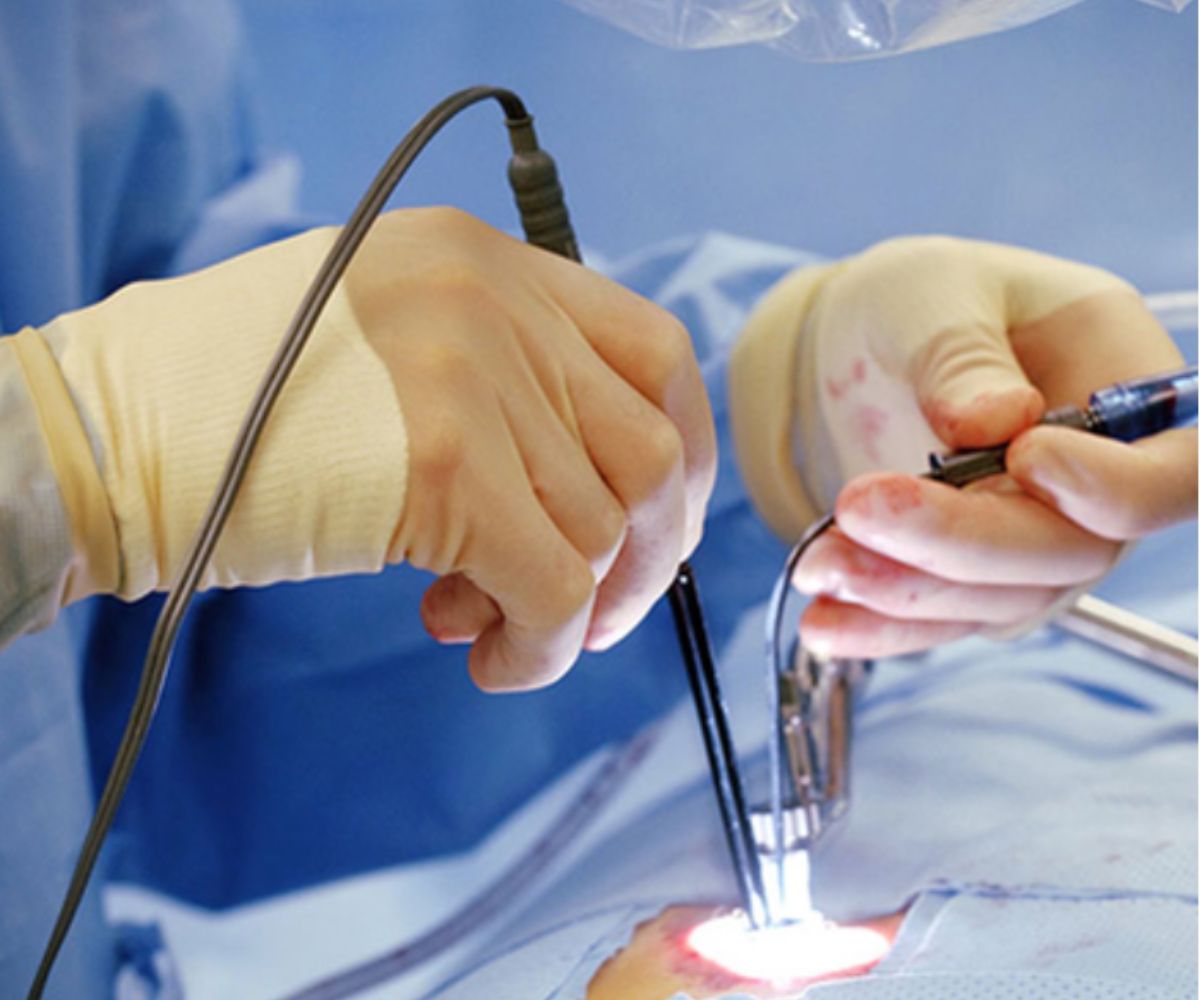Diseases
Hemorrhoids/Piles
A Minimally Invasive Approach For The Hemorrhoids
One of the significant breakthroughs in the technological era is the emergence of Minimally Invasive surgery. The patient and the surgeon seek a procedure that offers a good outcome with less morbidity. To date, no procedure fulfills this criteria. However, Laser Hemorrhoidoplasty has an upper edge since it’s hemostatic, less painful, bactericidal, leads to faster healing, is associated with lesser complications, and maintains the physiology of the anal canal by preserving the anal cushions.
Hemorrhoids are enlarged, bulging veins in and around the anus and the lower rectum. The veins around the anus tend to stretch under an increased pressure. Depending on the locations, hemorrhoids can develop inside the anal canal, known as internal hemorrhoids, or at the anal opening, called external hemorrhoids.

Common Causes Of Hemorrhoids
- Excessive Straining while having the motions
- Constipation
- Aging
- Trauma
- Lack of fiber-rich diet
How do I know if I have Piles?
Some common indications of piles are:
- Changes in bowel habits
- Bleeding from the anus during defecation
- Presence of lumps around or at the anus
- Pain during and after bowel movement
- Feeling of itchiness around the anus
Should you experience any of these symptoms, please see a trusted piles surgeon for a detailed assessment.
Expertise Areas
Are there Different Types of Piles (Hemorrhoids)?
Piles (Hemorrhoids) can be divided into four types depending on severity:
1st Degree
These are internal piles that bleed during bowel movements, but are not visible with no protrusion on the outside.
2nd Degree
These are internal piles that bleed during bowel movements, but are not visible with no protrusion on the outside.
3rd Degree
These are internal piles that bleed during bowel movements, but are not visible with no protrusion on the outside.
4th Degree
These are internal piles that bleed during bowel movements, but are not visible with no protrusion on the outside.
Appointment
Want to make booking or have a question?
Call us on 070027 11528 or simply book an appointment
Have a Look at Our
What are The Treatments for Piles?
Different degrees of haemorrhoids require different piles treatments methods. Lower degrees of haemorrhoids may only require lifestyle and dietary changes such as an increase in fibre and fluid intake in order to soften stools, reduce straining and relieve symptoms. However, greater degrees of piles may require you to undergo either a non-surgical treatment or surgical piles treatments such as laser haemorrhoidoplasty, as recommended by your piles surgeon.
Non-Surgical Piles Treatments
Oral Medications and Suppositories
Oral Medications and Suppositories These may be prescribed to treat small and/or bleeding piles.
Rubber-Band Ligation
It is done as an outpatient procedure. A rubber band is placed over the pile to cut off its blood supply, letting it fall off naturally.
Sclerotherapy
It is done as an outpatient process by injecting a chemical solution to the affected area in the anal region. This causes the piles to shrink over time.
Surgical Piles Treatments
Laser Hemorrhoidoplasty
Laser hemorrhoidoplasty is a relatively new procedure for hemorrhoid treatment in which the hemorrhoidal blood flow is coagulated by the laser. Prior to procedure, patients need to be anesthetized by the anesthesiologist. Subsequently, the procedure will be conducted by the coloproctologist / colorectal surgeon, the laser probe will be inserted into the hemorrhoids. Due to an intense amount of heat, the laser beam cauterizes and seals off the blood vessels, therefore the hemorrhoid will simply shrink while reducing the risk of excessive bleeding during and after the procedure. Since laser hemorrhoidoplasty is a precise procedure, it leaves no effect to the surrounding tissues as well as the anal sphincters.
Advantages of Laser for Haemorrhoids
• Minimal Pain
• Least risk of Complications
• Least Tissue Trauma
• Absolutely blood less
• Short Hospital Stay
Lifestyle Modifications To Minimize The Risk For Hemorrhoids
Healthy bowel habits and lifestyle modifications can significantly lower the risk for hemorrhoids.
• Avoid sitting in the toilet for too long (longer than 5-10 minutes), e.g. reading a book and using mobile phone, as it may increase the pressure on the hemorrhoids.
• Do not hold in stool when the urge comes to hard stool and difficult bowel movements.
• Avoid excessive straining.
• Taking high-fiber diet e.g. fruits and vegetables.
• Drink plenty of water, at least 6-8 cups per day to help keep stools soft.
Recurrent hemorrhoids are considerably common. However, the severity might be varied. Among the several treatment options, the most appropriate approach for each patient will be discussed in detail with the coloproctologist / colorectal surgeon who will definitely take clinical presentations, disease severity and patient’s overall health conditions and concerns into account.
What Are You Waiting For...
Make an appointment
Don’t hesitate to address your rectal concerns. Schedule a consultation with Dr. Kaushik Vora today.
Our location
Apollo Clinic, Kanchan Road, GS Rd, opp. Bora service, Guwahati, Assam 781007
Contact
Phone: 070027 11528
Email: contact@theproctocare.com
Opening Hours
Monday to Saturday: 9am to 10:30am and 5:30pm to 7pm
Sunday: Closed
